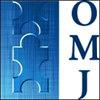What is Workplace Incivility? An Investigation of Employee Relational Schemas
Q2 Social Sciences
引用次数: 10
Abstract
ABSTRACT This qualitative study investigated relational schemas of workplace incivility to develop an understanding of incivility from the employee perspective, refine theoretical comprehension of the incivility construct, and begin collecting data to support development of applied interventions. Two hundred and five currently employed respondents answered open-ended survey questions about schematic features of incivility and normative questions about how it should be addressed at work. Responses were analyzed with phenomenological methodology. Workplace incivility was defined in relational schemas similarly to current scholarly conceptualization, but respondents’ examples of incivility included more severe mistreatment as well. Perpetrators, targets, bystanders, and interveners were identified as the primary roles engaged with incivility. Respondents called for active prevention and intervention against incivility, directed by organizational leadership. Rich segments of illustrative qualitative data are presented throughout the article. Researchers should note results indicating construct proliferation in workplace mistreatment literature. Practitioners should consider the roles of leaders and bystanders in addressing workplace incivility.什么是工作场所不文明行为?员工关系图式调查
本研究旨在从员工的角度理解职场不文明行为的相关图式,完善对不文明行为结构的理论理解,并开始收集数据以支持应用干预措施的开发。225名在职受访者回答了关于不文明行为的概要特征的开放式调查问题,以及关于如何在工作中解决不文明行为的规范性问题。用现象学方法分析反应。工作场所的不文明行为在关系图式中被定义,与当前的学术概念相似,但受访者的不文明行为例子也包括更严重的虐待。肇事者、目标、旁观者和干预者被确定为参与不文明行为的主要角色。受访者呼吁在组织领导的指导下,积极预防和干预不文明行为。丰富的片段说明性定性数据呈现在整个文章。研究人员应该注意工作场所虐待文献中结构增殖的结果。从业者应该考虑领导者和旁观者在解决工作场所不文明行为方面的角色。
本文章由计算机程序翻译,如有差异,请以英文原文为准。
求助全文
约1分钟内获得全文
求助全文
来源期刊

Organization Management Journal
Social Sciences-Education
CiteScore
2.60
自引率
0.00%
发文量
13
审稿时长
8 weeks
期刊介绍:
Organization Management Journal is a blind peer-reviewed online publication sponsored by the Eastern Academy of Management. OMJ is designed as a forum for broad philosophical, social, and practical thought about management and organizing. We are interested in papers that address the interface between theoretical insight and practical application and enhance the teaching of management. OMJ publishes scholarly empirical and theoretical papers, review articles, essays and resources for management educators. Appropriate domains include: -Organizational behavior- Business strategy and policy- Organizational theory- Human resource management- Management education, particularly experiential education
 求助内容:
求助内容: 应助结果提醒方式:
应助结果提醒方式:


